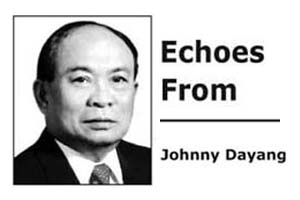BY JOHNNY DAYANG
*
THE issue of libel being a criminal offense has been on the legislative table for as long as we can remember. Yet, for some reason, both chambers of Congress always defer the discussion of bills related to its decriminalization. Ironically, when someone from the press gets unfair shake from the courts, the same legislators come into the open and blame the sitting administration and opposition critics as behind the discordant situation.
In nearly all democratic countries, including the United States from whom we inherited our laws, libel has been degraded into a civil case. Anybody who is found guilty, like the eminent journalist American Jack Anderson (his only blot in his entire career), was only slapped a fine. Here in the Philippines, which prides itself of following the American judicial system, things can go haywire even before the arraignment starts.
The Philippine press has for so long been called Asia’s freest. Whether that is a compliment or an insult, there is actually little basis to that plaudit. If what is free is comparable to the limits imposed in China or Burma, then the appellation makes sense. But because we kowtow to what the Americans define as free press, then our laws on libel, which date to pre-Commonwealth period, are doubtless archaic and outdated.
Journalists and their supporters, to keep the fire of free press burning, can always go to the streets to protest daily and ask that the libel laws of the land be amended. But what if the lawmakers in whose hands the repeal resides, prefer to debate on bills that spell personal favor? Knowing that people in public office are often at the receiving end of journalistic brickbats, surely that scenario looks bleak.
The irony about criminal libel, compared to issues of graft and corruption, is ranked at the top. Any scribe worth his salt often courts the ire of people in power, and with no resources to even buy a motorbike to bring him to his assignment, surely the poor journalist is in tight fix when it comes to hiring the best lawyer to defend him.
There are many cheaters in government who only get a slap on the wrist from the courts when convicted. But when journalists are found guilty, things can go messy. Even if jail time is part of the risks of the media profession, such assertion is contrary to norms and is a naked violation of press freedom. Of course, the press has its excesses, but surely most of the journalists are not as corrupt as those who brazenly claim to faithfully serve the public.


